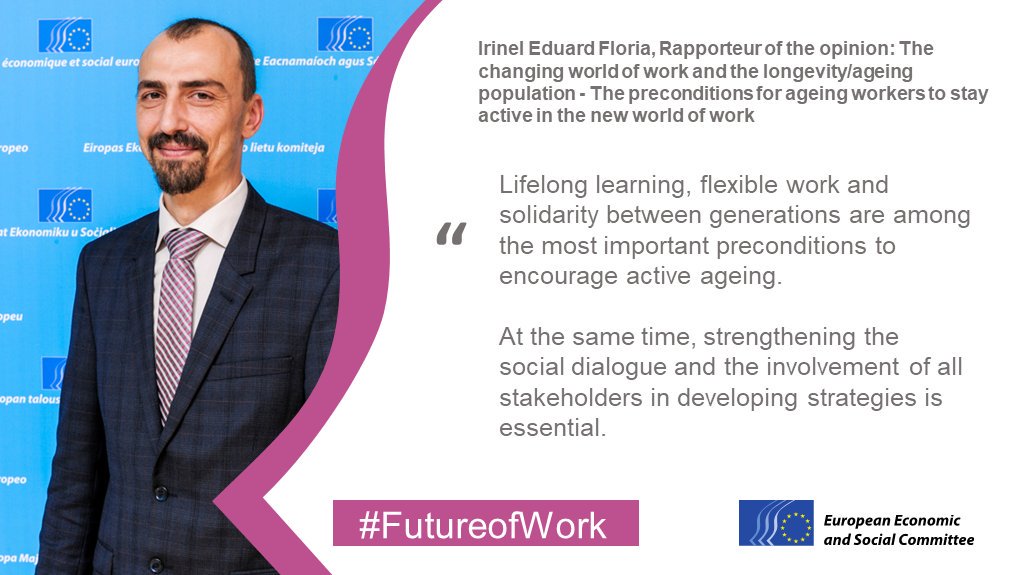
from Twitter @EU_EESC
Demographic ageing is an opportunity, if suitable policies are adopted to prepare societies for this change. This is the conclusion of the European Economic and Social Committee (EESC) in its opinion on ‘the changing world of work and the longevity/ageing population: preconditions for ageing workers to stay active in the labour market’, requested by the Finnish EU Council Presidency.

Challenges on the labour market
In its opinion, the EESC explores how to increase working lives in line with longevity, considering the main reasons for premature departure from the labour market: “lack of workplaces and appropriate active labour market policies and measures, health issues, lack of relevant skills as well as unsatisfactory work-life balance”. It also recalls the responsibility of governments and social partners to create age-friendly workplaces. The gender perspective is given a strong role in the opinion, especially regarding high numbers of part-time employment among older female workers.
Warning against digital exclusion
The opinion links ageing with the industrial revolution towards more digital technologies, stating that this can be challenging to older workers.
In its opinion, the EESC advises to:
- develop active ageing strategies and to evaluate the impact of measures
- strengthen social and civil dialogue to address ageing
- use public financing to support older people’s participation on the labour market through lifelong learning, skill development, advice to job-seekers, preventive and rehabilitation measures. Companies should also invest in developing the skills of their older workers, and the role of NGOs in adult learning programmes should be strengthened.
- make digital technologies more accessible to older people by adapting equipment to their needs
- actively promote dynamic careers through learning, the development of multiple careers within one’s lifetime, anticipating emerging jobs, providing career counselling, giving tax incentives to businesses for training, using peer counselling among older workers
- support entrepreneurship among older people, which can allow them to employ younger ones. E.g. through a European support programme to stimulate senior entrepreneurship
- tackle employers’ prejudices against older workers by tightening legislation against age discrimination, promoting research, targeting older women ‘upskilling’
- value intergenerational knowledge transfer initiatives, such as reverse mentoring relationships
- improve work-life balance, allow for flexible work arrangements, improve job quality and adapt working environments of hazardous jobs
- promote solidarity between generations through awareness-raising campaigns.
EESC’s opinion takes on board many of our suggestions. Through the establishment of an intergroup on demographic change, we intend to work with members of the European Parliament and the Commission Vice-President-designate Ms Suica to implement these recommendations on EU and national level.
For more information, please contact: Philippe Seidel Leroy philippe.seidel@age-platform.eu

from Twitter @EESC_LMO






